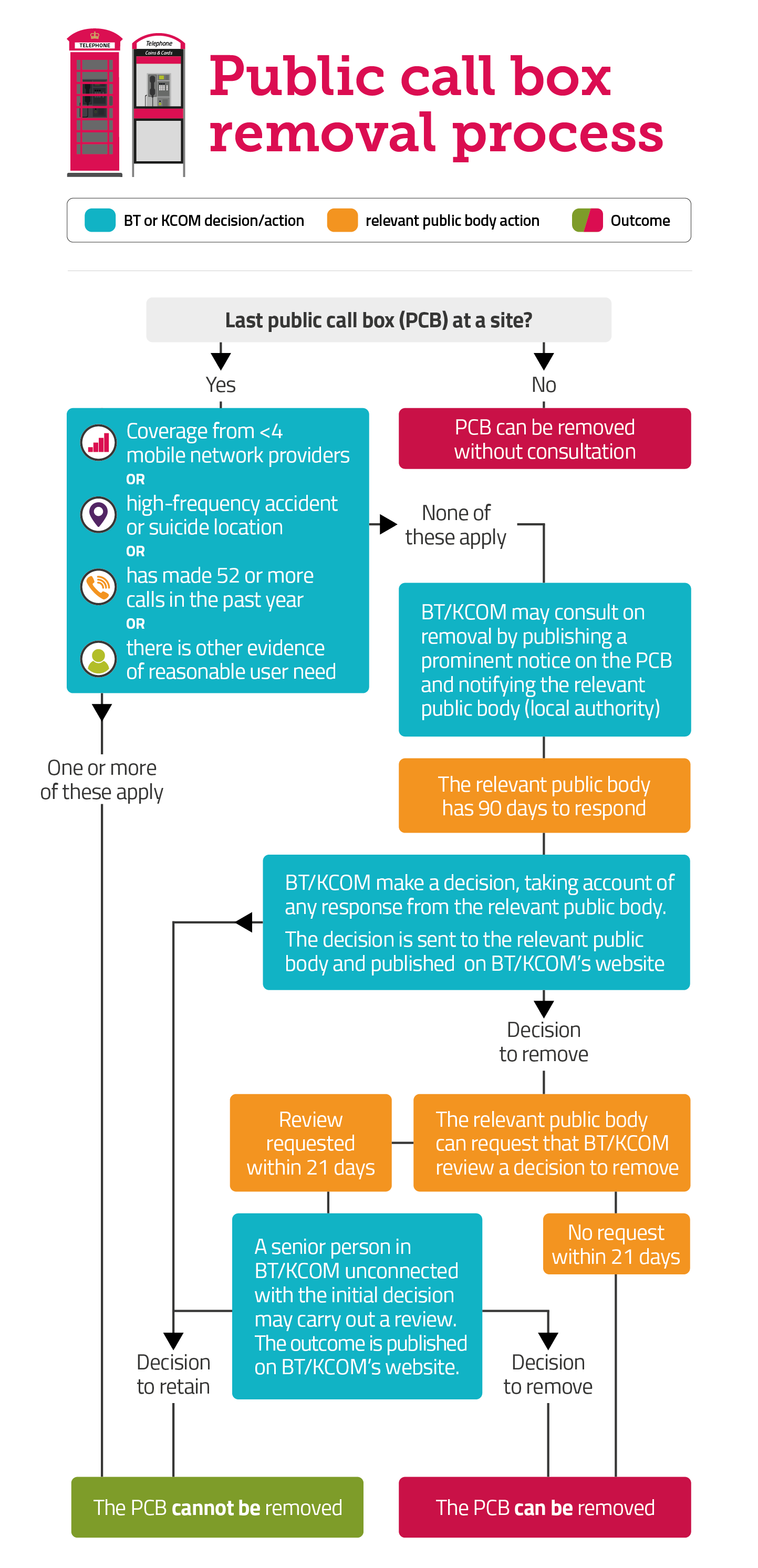Public call boxes can provide a safety net for people without access to a landline or working mobile phone. In areas with poor mobile coverage, a public call box can be the only option for making calls, including to the emergency services.
BT (across the UK, except for the Hull area) and KCOM (in the Hull area) are required to provide public call boxes to meet the reasonable needs of the public.
In June 2022, we updated our rules on public call boxes. BT and KCOM now cannot remove a box if it is the last remaining in an area (i.e. more than 400 metres’ walking distance from the next public call box) and it meets one or more of these criteria:
- it is in a place without coverage from all four mobile network providers;
- it is located in an area with a high frequency of accidents or suicides;
- it has made 52 or more calls over the past 12 months; or
- there is other evidence that the box is reasonably needed at the site – for example if it is likely to be relied upon in the event of a local emergency, such as flooding, or if it is used to call helplines.
If a public call box that is the last at a site does not meet any of these four criteria, BT or KCOM can consult with the relevant local authority on removing it. BT and KCOM must take account of any views and evidence received from this consultation before deciding whether to remove the box.
Public call boxes that are not the last at a site can be removed by BT and KCOM without consultation.

Our guidance on public call boxes (PDF, 195.0 KB) has more detail on how we expect BT and KCOM to apply this process.
Only payphones on public land are covered by our rules
Our rules only apply to payphones on public land to which the public has access at all times. This means payphones on private land, such as those in train stations and airports for example, are not covered by our rules and can be removed without consultation.
Local communities may be able to adopt red kiosks in their area
BT offers a scheme that allows its ‘heritage’ red kiosks to be adopted if the phone is no longer needed. Local bodies such as district or parish councils and charities can adopt a kiosk for £1. BT will then remove the telephone equipment and the kiosk can be used for other purposes, such as for housing a defibrillator or as a mini-library. BT’s website has more information about the scheme.
Report a damaged or faulty box to BT/KCOM
Our rules require BT and KCOM to ensure they adequately maintain and repair their public call boxes. To report a damaged or faulty box to BT, use the following email address: customer.serv.payphones@bt.com. See BT's website for more details.
For any damaged or faulty payphones in the Hull area, contact KCOM at: payphones@kcom.com.
